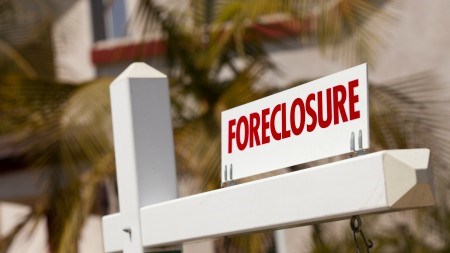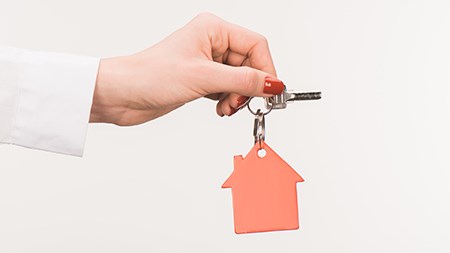There are great opportunities for buyers at property auctions, but you need to understand the rules of the game. Here are 5 tips for buying property at an auction.
If you’re planning to buy a house at an auction there are a few things you should note. Here we distinguish between a voluntary auction, bank auction, sheriff auctions as well as property in possession, with everything you need to know to prepare you for buying a house at an auction.
A property investment should be the “bricks and mortar” of your investment portfolio, and a great place to create wealth and residual income. Like any venture, fortune favours the bold, so there is no time like now to get out there and make it happen. You will need to decide what property to buy as there are so many variables and much depends on your own circumstances.
What I can say is you need to choose what suits you and become an expert in that space.
I can tell you that I got bitten by the property bug by buying my first property at an auction. It was an old house bordering on a commercial node that was part of a deceased estate. I knew there was a lot of interest but I had a tenant lined up already. I remember watching the bidders at the auction from my seat and when they were exhausted fighting it out against each other and the hammer was going to fall, I put in my first bid. All I can say is it is a really exciting process with the best opportunities to find bargain properties. But you really need to understand the rules of the game.
Let’s explore some of those.
Firstly there are different types of property auctions, so chose which type of auction you go to carefully.
Voluntary auction
In South Africa there is a growing trend to sell your house through an auctioneer in a VOLUNTARY auction, with the prime purpose to get a better price for the property by playing buyer against buyer in a live environment. These auctions can work well for the seller in an active property market but seldom work for the buyer. The seller has a reserve price and the sale is subject to the sellers acceptance.
READ MORE: Tips for buying and selling at property auctions
Bank auction
Look out for the bank auctions, also a voluntary auction (sort of), organised by the bank but where the distressed seller (who is significantly in arrears with his bond) is given an ultimatum to sell at the auction, subject to the bank accepting the bid.
In this case most of the properties are sold at a discount and the bond holder agrees to write off the shortfall on the outstanding bond. (In fact they give the seller an unsecured loan with soft terms for the shortfall) So in this circumstance you are buying a home from a seller with all the normal warranties and on transfer the rates and taxes will have been sorted by the seller. This is a great place to source realistically priced property, without the risks inherent in forced sales.
WATCH VIDEO : Buying Property from Bank Sales
SHERIFF auctions
The ultimate source of great value property is of course the SHERIFF auctions. Where the bank is unable to rehabilitate the bond holder and they see no chance of recovering their funds, the bank applies to the court to attach the property and sell it to the highest buyer as it stands, called a sale in execution. These transactions are executed by the sheriff of the court. They are not well advertised with poor turnouts and often postponed. In most cases the only party at the auction is the bank. The bank will let the property go at a big discount, often around 50% of value, and this is where the real opportunities lie.
READ MORE : Buying at a Sheriff Auctions
Property in possession (PIP)
Understand when the bank buys the property in at a sale in execution they have to incur significant costs, transfer, evicting the errant occupants, making good the damage and securing the vacant property. On top of that there are many stalling tactics that can hold the process back and the bank gets locked up in litigation, preventing them from selling the property on. They add all the costs incurred and try to recover the total when they sell. This is the property in possession, or PIP, and are therefore not always great buys.
How to buy a house at auction?
To buy a house at auction you’ll need to attend a voluntary or bank auction and register to receive a bidder’s card and sales catalogue. You’ll receive this two to three weeks before the auction. The information pack will include the conditions of sale and copies of the title deed, site plans, zoning certificates, lease agreements and rental schedules.
If you are ready to go and get in on the action, here are 5 lessons you should remember before buying at a sheriff auction;
Make sure you can follow through with the purchase. If you can’t make the guarantees, you will forfeit the deposit and still be liable for sheriff’s fees.
The property is sold as is and it is your responsibility to settle all outstanding rates, taxes, municipal services, body corporate levies and don’t rely on the figures given by the sheriff.
The majority of these properties are occupied and it is your problem to evict the occupants.
If the owner is sequestrated, the transfer can be held up for extended periods of time. The owner is often allowed to have occupation while this is in process and you cannot get transfer, so your deposit and costs are locked up.
You will have little time, or often no access to the property before the auction, so there is considerable risk that the property is not in a reasonable condition.
In Summary: How to buy a house at auction?
- Go to an auction and get registered
- Make sure you can go ahead with the purchase, in order not to lose your deposit
- Make sure you will be able to pay all other outstanding rates
Private Property makes it efficient and convenient to locate your dream home by listing hundreds of the best deals and beautiful homes actively on sale right now.



